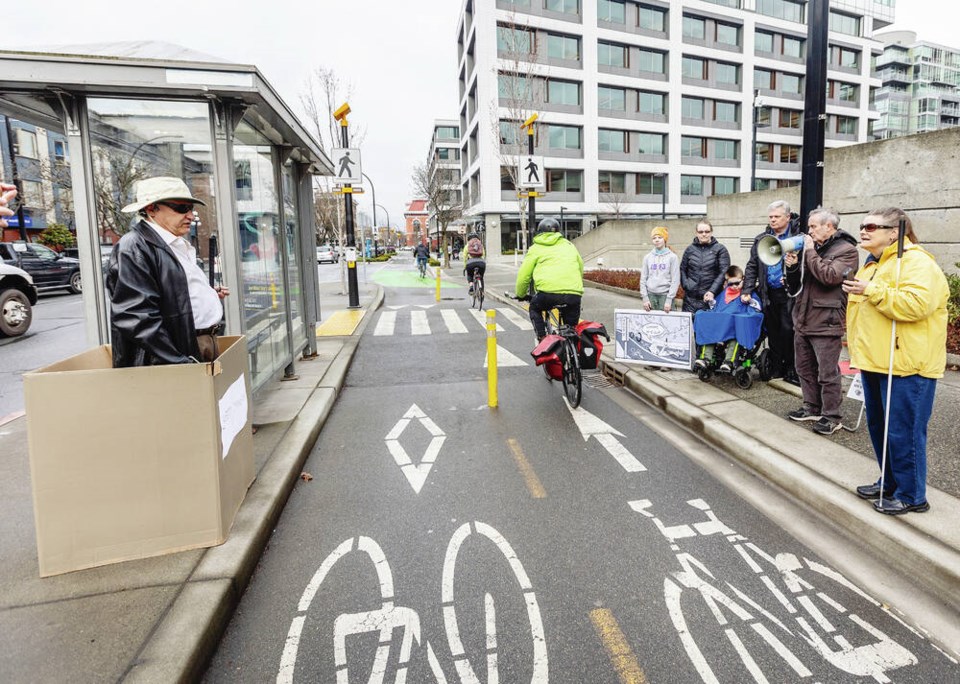A commentary by an executive member of the Canadian Federation of the Blind and board member of the It’s Your Right to Equal Access Advocacy Society.
“Floating or island” bus stops located between bike lanes and the road, away from the curb, pose ongoing danger to all pedestrians, but particularly blind transit users.
We, more than anyone else, rely on this essential service. A provincial review of our public infrastructure is taking place with a report pending in March.
Provincial politicians, however, have an incompetence unworthy of their designated social standing that reveals a callous disregard for proven endangerment.
Here is an excerpt from a June 2023 letter from Rob Fleming, B.C.’s minister of Transportation and Public Infrastructure:
“My ministry created the British Columbia Active Transportation Design Guide to help all levels of government use best practices when designing and building active transportation infrastructure. The guide, which incorporates universal design principles, including recommendations from the Transportation Association of Canada (TAC) Guide and the Canadian Standards Association, provides extensive recommendations on making transportation facilities accessible to people of all age and abilities.”
Such a statement from a high ranking minister is ambiguous, disingenuous and demonstrates a wilful misinterpretation of the application of equitable public infrastructure.
Consciously creating unsafe barriers to essential public services violates the Canadian Charter and human rights-based legislation designed to ensure unimpeded public access of citizens with diverse abilities.
The use of incomplete and incorrect B.C. human rights case law to legitimize such barriers violates the purpose of social equity legislation.
Employing the principles of universal design does not involve “best practice” policies. Best is subjective and practice implies an attempt.
Even with “best practice” it is hard to imagine where such advice to install dangerous “floating” bus stops could have originated. “Recommendations” and “guidelines” are ineffective and open to misinterpretation.
These floating/island bus stops fail to meet any of the seven principles of universal design. Authorities claim to be incorporating these principles, but if that were true the widespread inconsistency of public infrastructure, along with the construction of these stops, would never have occurred.
The seven principles of universal design were developed in 1997 by a working group of architects, product designers, engineers and environmental design researchers.
The B.C. Active Transportation Guide and other recent guide documents are insufficient and unreliable with regard to safe universal public access. Confirmation is evident with the continued introduction of these bus stops.
Asking citizens to participate in forming multiple inter-municipal advisory committees on disability issues absent of evidence of a consensus of what constitutes safe equitable public access may well produce a regressive rather than a beneficial outcome.
An expectation that thousands of committee members across the province will agree on consistency to achieve safe, universal, equitable public infrastructure design is unimaginable.
The provincial government and hundreds of local municipalities using this model of delivery are already revealing a mish-mash of various discriminatory and incongruous designs of public infrastructure.
Let us all hope civil engineers within our municipalities understand the meaning of universal public access.
>>> To comment on this article, write a letter to the editor: [email protected]




